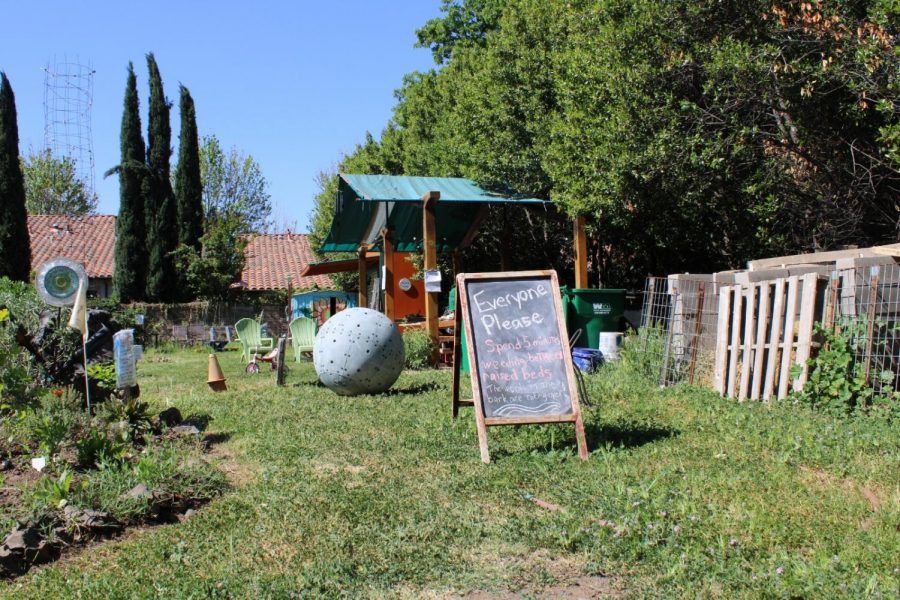What is composting and why does it matter?
The first rays of sunlight beamed across the sleeping town of Chico as the low rumble of garbage trucks sounded off the Esplanade. Many Chico residents are waking up, making breakfast and throwing away tons of environmentally valuable waste that could be used in composting.
Many people don’t know that composting is nature’s way of recycling nutrients back into the soil. By composting, you can improve the fertility and health of gardens while also learning about the process of decomposition. There is currently a strong percentage of waste going into landfills that could be composted instead. Plus, composting is pretty inexpensive and can be fun by yourself or with your friends and family.
Two types of composting exist: Cold and hot.
Cold composting can take a full year for organic matter to decompose, while hot composting only takes one to three months depending on your geographical location. Due to California’s persistent drought it can take upwards of four to six months. Hot composting requires adding nitrogen and carbon, air and water; microorganisms then feed faster which helps speed up the process of decay. All cold composting needs is a place to decompose at its own pace, with only minimal intervention to air out the pile occasionally.
Composting happens when organic matter decomposes over a period of time. Some good things to add to a compost pile that provide nitrogen are your “green” wastes such as vegetable peelings, fruit waste, coffee grounds, tea bags, fresh green leaves, fresh grass clippings and fresh manure. Be careful of adding too much citrus fruit waste because it can end up killing the worms that are incredibly helpful and important when composting.
Your carbon based additives, “brown” wastes such as pine needles, tree branches and bark, dry grass clippings, sawdust, straw or hay and dry leaves. You want to use anything that’s not fresh for when you’re choosing to do hot composting.
kAren Gostlin, a local Chico advocate for sustainable living and owner of Seed & Sow Gardens LLC, discussed the benefits of composting and its low cost. “The cost of composting on the individual level is basic science, using complex composting soil that adds rich nutrients, like the production of beneficial protozoa, bacteria and fungi that all helps break down organic matter.”
The benefits of composting include the enrichment of the soil and the discouragement of pests and diseases, while also reducing the need for chemical fertilizers. By composting, we can reduce methane emissions from landfills and lower our individual carbon footprint. Composting also encourages the proliferation of beneficial bacteria and fungi that break down the organic matter, producing a rich nutrient-filled material.
Composting is an aerobiotic process. In order for the organic matter to compost effectively, air needs to be let in. Introducing oxygen into the pile lets the organic matter breathe and expels excess heat. This allows the excessive amount of moisture that has built over time to escape through holes.
One of the best ways to help promote this process is to have a separate composting bin meant solely for the purpose of separating the bottom layer of composting from the top layer. This allows for better aeration of the nutrient-rich soil at the bottom and helps to keep the new layers on top separated from the nearly finished compost at the bottom.

“There are several community gardens in Chico; a lot of cities and towns have them, and so we’re promoting food security by giving them our food waste in a community garden,” said Gostlin. “[T]here’ll be fewer food deserts through the community gardens, [which] promotes social inclusion and empowerment for a group of people and community. A community garden is a place that everyone can join … and can participate in, no matter what walk of life you are in.”
The Compost Garden at Chico State is now accepting food waste 24/7. It’s the perfect solution for those who live in an apartment and can’t easily compost. They are willing to take coffee grounds, tea bags, fruits, vegetables, grains and egg shells. Dairy, meat, paper products, cardboard and BioPlastics aren’t accepted.
“I think composting is very important!” said Chico State student Sara Alise. “I have a mini compost bucket, but I don’t do worms, just coffee grounds and eggshells.”
Composting can help the environment and your mental health
The King’s Fund, an independent charity working to improve health and care in England, looked into how holistic therapies – therapy by exposure to plants and gardening – could contribute to the overall health and wellbeing of people. Several of these studies revealed that simply observing nature or even images of natural scenes had beneficial effects on mood and mental health. Viewing plants reduced stress, fear, anger, sadness, blood pressure, pulse rate and muscle tension.
What makes gardening so beneficial to your health is the combination of physical activity with social interaction as well as the exposure to nature and sunlight. Sunlight helps to lower blood pressure and increase the intake of vitamin D, especially during the summer. A study conducted by the Royal College of Physicians in London states, “Working in the garden restores dexterity and strength, and the aerobic exercise that is involved can easily use the same number of calories as might be expended in a gym.”
A review published in the British Medical Journal in 2020 compiled research on the impact of gardening on health and well-being and found that gardening reduced stress, improved depressive moods and strengthened social engagement. The authors of this review suggested that gardening should be prescribed for physical and mental health problems, both in a preventive nature and as a type of treatment.
“There’s really no work involved,” said Gostlin. “The way it relaxes me is knowing [that] what I’m doing is benefiting my family, my neighborhood, my community.” She goes on to talk about how there is enough stress in this world and being able to do something so simple as composting can benefit the entire planet.
Communal and therapeutic gardening provides social interaction that helps to counteract social isolation for a range of people struggling with their mental health which often promote feelings of loneliness. A Psychology Today article by James Lake, a clinical assistant professor at the University of Arizona College of Medicine, discusses how individuals who were already struggling with mental illness before COVID-19 are now facing even greater challenges.
“These circumstances may worsen in the context of widespread poverty and hunger, entrenched disparities in health care among minorities and the underserved, and an overall decline in access to health care resulting from the economic breakdown in the wake of COVID-19,” said Lake.
The same can be said when thinking about gardening; not everyone is given the same access to processes that can help and improve their mental health. The creation of communal gardens can grant that access to all kinds of people, including but not limited to: children, elderly people, those with disabilities and a variety of marginalized groups.
Composting as a community service
In the early 2000s, San Francisco city set a 2020 zero-waste goal. The city passed the Mandatory Recycling & Composting Ordinance that requires all local residents to separate organic matter that could be compostable from recycled materials and landfill trash. The “Fantastic Three” was the innovative San Francisco program to collect the three bins. Blue bins represent recyclables, the green bin is meant for compostables, and the black bin was for all the landfill material. This three-bin system allowed for citywide residential and commercial curbside pickup.
The biggest conflict that San Francisco dealt with was trying to change the lifestyle of its residents. The sewers were getting clogged from biosolids being thrown down the garbage disposal rather than the compost bin.
When San Franciscans started to change their lifestyle they still ran into some problems such as throwing plastic and glass into the compost bins rather than the recycle bin. This could result in the plastic being spread over farmland, causing an abundance of less beneficial nutrients which take longer to decompose.
The state supports the Green Space Program that promotes small scale community composting programs. This program seeks to provide necessary resources to help increase community gardens that are both new and existing. Approved small scaling composting communities can benefit from this support in reducing landfill emissions.
In September 2016, Gov. Jerry Brown signed Senate Bill 1383, requiring organic waste in California landfills to be reduced by 50% by 2020 and 75% by 2025. This bill is the most significant waste reduction mandate to be adopted in California in the last 30 years and focuses on reducing organic waste such as food waste, green waste and paper products.
The state must reduce organic waste disposal by more than 20 million tons annually by 2025. On top of these requirements, SB 1383 mandates that by 2025 at least 20% of edible food currently sent to landfills instead be collected and redistributed for human consumption. Food waste alone comprises 18% of what we dispose and could be better served to help feed those in need.
CalRecycle is in charge of adopting the regulations set forth by SB 1383 in order to achieve these targets, reduce methane emissions and support the state’s climate change goals overall. To achieve these goals, it’s crucial for all residences, business and local, state and federal government entities to actively participate in organic material collection programs.
California counties must adopt enforceable ordinances to ensure that all residential and commercial generators are compliant. Penalties for noncompliance will be assessed by CalRecycle beginning in 2022 and by local jurisdictions by 2024.
Since San Francisco set forth its ordinance about 10 years ago, the city has seen a property compliance of over 99%. City staff found that more than half of the trash being sent to the landfill was still composed of recoverable materials which shows there is vast room for improvement.
“I think it would be awesome if Chico or Chico State had a program that offered resources to help our community’s environment,” said Alise. As the environment struggles to maintain balance, a city or town could do its part in reducing its carbon footprint. Chico has been successful in reducing a portion of its carbon footprint, but adopting composting as law would enforce a permanent change. Chico could be an example to the rest of the world of a more sustainable and Earth-friendly city.
San Francisco has relied on financial incentives, tied to its pay-as-you-go structure, as a means of promoting program participation. Instead of issuing fines to those businesses or households that are noncompliant, the city uses a recovery rate discount, an outcome that could result in hundreds to thousands of dollars in additional costs, as an incentive to comply.
More facilities and composting programs are needed as the population grows 1.1% annually. Most Americans end up throwing out about 1,000 pounds of organic waste every year that could instead be composted.
Composting in the Chico community
Chico has a handful of earth-friendly facilities that assist in reducing a little bit of the town’s carbon footprint, like Chico Green Waste Composting, Chico Composting Facility and Old Mill Farm of Durham. Earthworm Soil Factory is a great resource for larger companies and organizations, but not intended for individual residents. Yet, there is no designated place to take kitchen scraps, nor is there a composting truck assigned to pick up organic waste for the community.
Rose Nelson, a local woman inspired to make a change in Chico started Drop in the Bucket around May 2018. Nelson wanted not only to teach her children the importance of composting, but also get the community involved. The process is simple, affordable and helps bring life back into the community. Drop in the Bucket is powered by a bicycle and works toward reducing waste one bucket at a time.
Drop in the Bucket switched loving hands around October of 2018, when Jason Jaques, pronounced Jakes, was made owner of this successful little business. After moving back to Chico a couple months earlier, Jaques ran into Rose and was eager to help keep the dream of Drop in the Bucket alive by taking ownership.
“I saw her at the Saturday market in Chico, and she was having people sign up for her service… I wanted to befriend her and help her with her project because I just thought it was the best thing in the whole entire world,” said Jaques.
Through dedication and hard work, Jaques is able to offer the option of composting to the community on a larger scale since his team was able to expand from a bicycle driven compost service to an electric car that still gets the job done, but more quickly. Drop in the Bucket’s flat service fee is $20 a month. Each bucket of kitchen waste received by Drop in the Bucket is converted to nutrient-rich soil that local gardens can use.
Most of the facilities available to the public require a fee or a membership to obtain access and permission to bring kitchen waste materials along with yard waste content. There are a handful of local gardens that take certain kitchen waste after gaining permission from the prime plantsperson of that particular local garden.
Don’t just swing on by and dump your “kitchen waste,” be considerate of people in the community. Having an area to bring organic waste that will help the environment, not destroy it more. Always ask permission whether or not your kitchen waste is acceptable organic material that will decay over time, and help the local garden soil flourish.
The Kentfield Garden is open to the public with a well-supervised group of volunteers always available. Another working garden that is more tuned to just the neighborhood is the Vecino Victory Garden near Laburnum Avenue in Chico. All these gardens are striving to make Chico a better, more sustainable place to live.
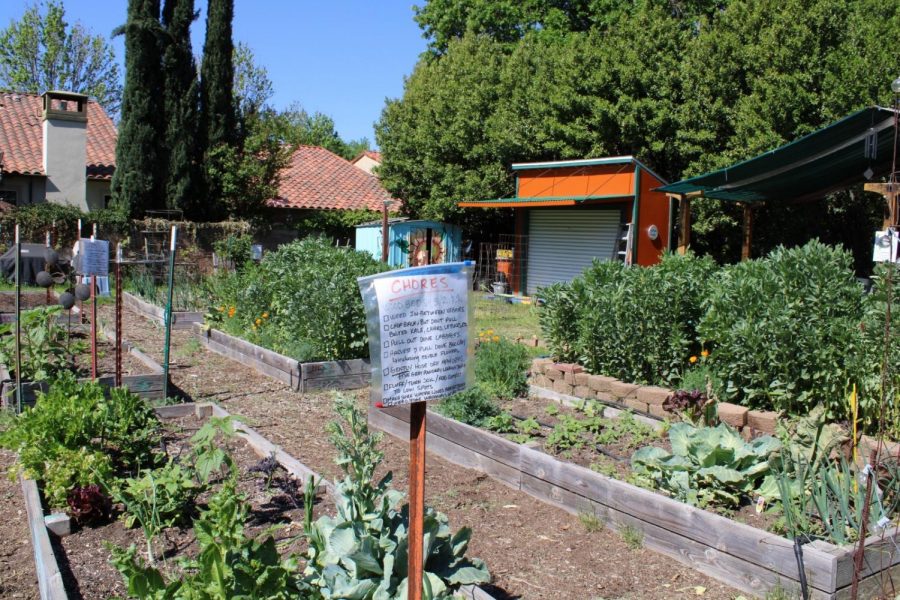
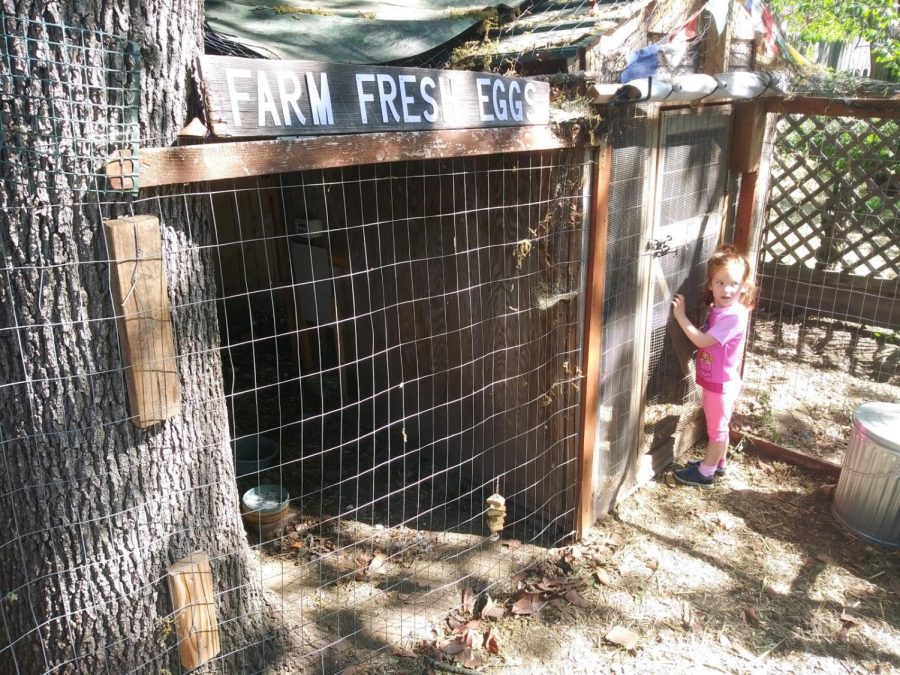
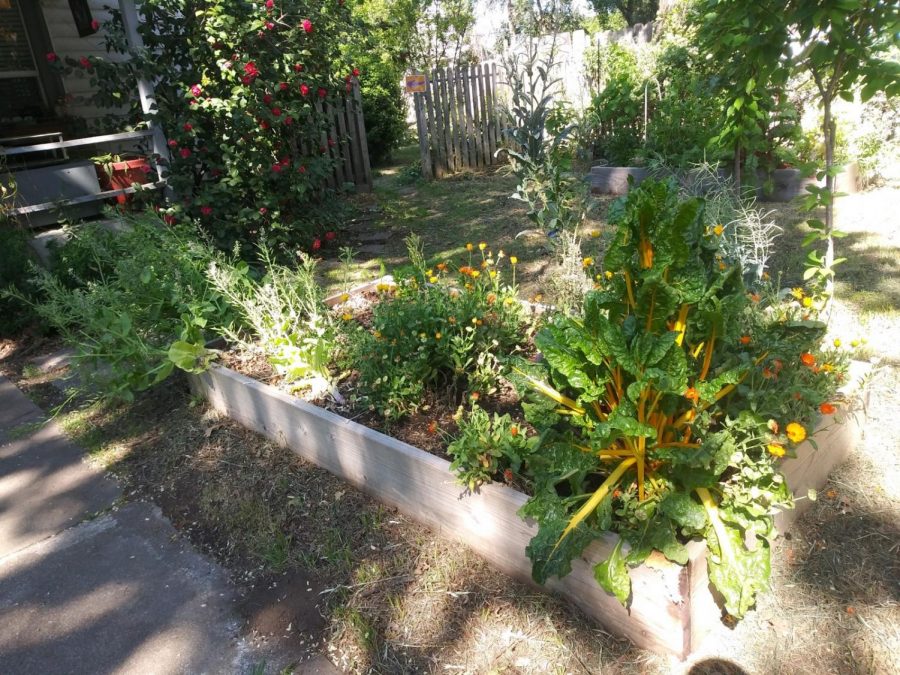

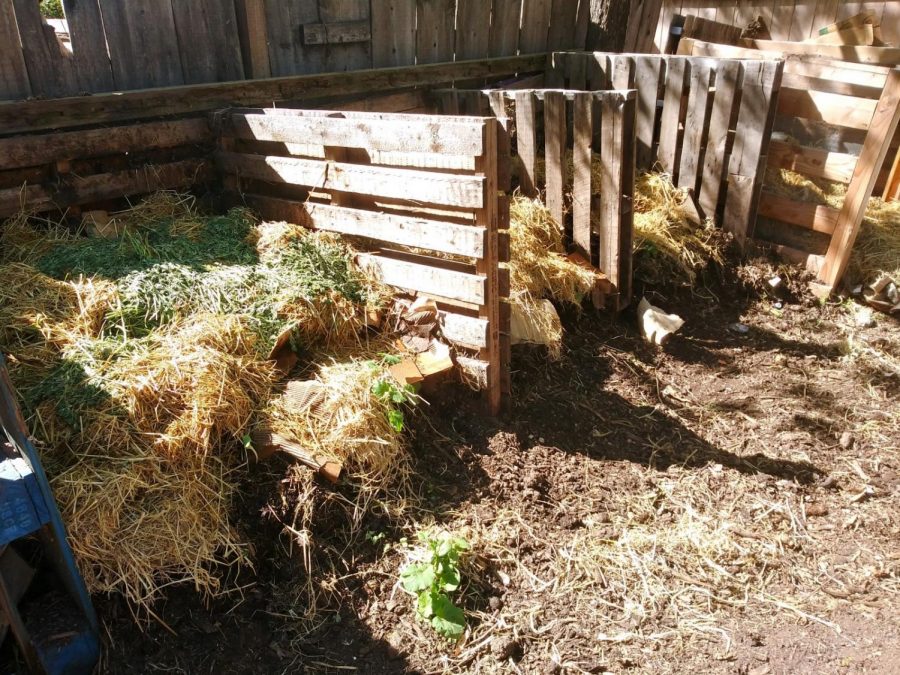
Eliane Cristina Da Silva is the founder of a local non-profit organization called the SOL – Seeds Of Love. This local non-profit is aspiring to build The Healing Program and Arts Center in Paradise called The Soul School. The goal is to give back to the community with a place where everyone can grow and flourish.
The Healing Program is working with the Paradise Recreation and Park District to provide a range of programs aiming to help heal and bring together those residents of the community who have suffered from great losses, such as those resulting from the 2018 Campfire.
The program will be host to a multitude of classes at the Terry Ashe facility located in central Paradise. These include, but are not limited to: music, dance, cooking classes and an extensive gardening program onsite.
The gardens will start from scratch, remain sustainable and organic, and incorporate The Zero Waste Program which relies on the use of compost and recycled materials. SOL anticipates a slow and progressive growth over a three year period with the garden helping to increase food security. Through at least 50 business and individual contributions, the dream of SOL is coming alive.
Jessica Shippelhoute & Erin Holve can be reached at orionmanagingeditor@gmail.com








